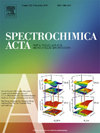投稿信息
稿件收录要求
Manuscripts dealing with experimental and/or theoretical aspects of molecular spectroscopy and its application to chemical problems will be considered for publication in Spectrochimica Acta, Part A. In addition to fundamental papers on molecular structure and interactions (including ab initio theory), papers dealing with applications in areas such as qualitative and quantitative analysis, instrumentation, surface spectroscopy, non-linear optics, laser photochemistry, and fundamental aspects of atmospheric and environmental measurements are also encouraged. The range of spectroscopic techniques covered by the journal includes infrared, visible and ultraviolet, linear and circular dichroism, fluorescence, Raman; all continuous wave and time-resolved spectroscopies; magnetic resonance spectroscopy, including electron paramagnetic resonance, high-resolution NMR, solid-state NMR and magnetic resonance imaging; magnetic circular dichroism, neutron and light-scattering; and Mössbauer and X-ray absorption. SAA: Biomolecular Spectroscopy Manuscripts reporting research on any of the above areas of spectroscopy but applied to biological molecules or with a clear biological relevance should be submitted to one of the advisory board members or directly to the Editors of SAA: Biomolecular Spectroscopy . It is the aim of this section to foster communication between (bio)chemists, (bio)physicists and biologists who use spectroscopy to acquire information on the structure, function and dynamics of bio-molecules and their specific components at all levels of organization, from simple model systems, via macromolecules and molecular aggregates, to cells, cellular aggregates and whole organisms. Research on dynamic properties of biomolecules and on the introduction of spectral probes into biomolecules via molecular genetic techniques is also included. The section especially encourages the submission of Letters requiring rapid communication.




